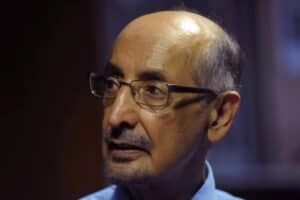The country has chosen to rewrite Madikizela-Mandela’s history and finally acknowledge her, officially, as the Mother of the Nation.

There is a massive rewriting of history going on in South Africa right now. It’s something the country never prepared itself for, nor even in the least bit expected.
For decades, Nomzamo Winnie Madikizela-Mandela was regarded as the errant wife of the Father of the Nation, Nelson Mandela. She suffered the indignities of once being disowned by her own movement, the ANC.
In 1989, Murphy Morobe and other leaders of the Mass Democratic Movement decided that a time had come for those leading the fight against apartheid to make it plain and clear to everyone that Winnie Mandela was no longer a welcome entity within a movement that was, at the time, built around her then incarcerated husband’s name because of her continued indiscretions. Those included her alleged role in the murder of teenage activist Stompie Seipei.
Winnie Mandela had never been the silent kind of woman that authorities expected her to be, the kind that became docile and afraid of state power because her husband was the country’s enemy number one at the time. She became an international figure in her own right and was regarded as an international symbol in the fight against oppression the world over.
In the absence of her husband, who was incarcerated on Robben Island, she became a de facto leader of the struggle against apartheid.
It came as no surprise to many when she was detained and put in solitary confinement for 491 days. Her banishment to Brandfort in the Free State had attracted international criticism. Yet she chose to continue fighting against apartheid from the back of beyond.
She continued to receive international ambassadors and dignitaries in the little time that the apartheid security machinery allowed her.
The rewriting of history that’s occuring right now is that in the hurly-burly events in the ’80s, she was implicated in kidnappings, assaults, brutal necklacings and even murders. And for those alleged crimes, the movement distanced itself from her. She was branded an outcast. She was destined to be an unpleasant footnote in our country’s history.
But history has a funny way of casting judgment on people. Mere mortals had pronounced her place in their historical order of things according to how they saw her role in the struggle to liberate South Africa.
The masses of people whom she led in the political vacuum created by the jailing of the Rivonia trialists, as well as the demise of the Black Consciousness movement following the death of Steve Biko, chose a different lens through which to view the same events that everyone else unforgivingly judged her.
Although she and her former husband are no longer around to see the great outpouring of sympathy and support for her role in the struggle, history will record that, following her death, the country chose to rewrite Madikizela-Mandela’s history.
After her death, that portion of the country that was silent when she was the only leader of the anti-apartheid struggle to appear and defend herself before the Truth and Reconciliation Commission has found its voice.
And through this unmistakable voice of support the country has finally acknowledged her, officially, as the Mother of the Nation.
The people of South Africa have decided that, with all her faults, with all her shortcomings, Winnie was no different from all other struggle leaders, and in a way, posthumously, those that vilified her in life when she was no different from them are saying: “You were an exceptional servant of the South African people”.

Sydney Majoko.
For more news your way, follow The Citizen on Facebook and Twitter.
Support Local Journalism
Add The Citizen as a Preferred Source on Google and follow us on Google News to see more of our trusted reporting in Google News and Top Stories.






